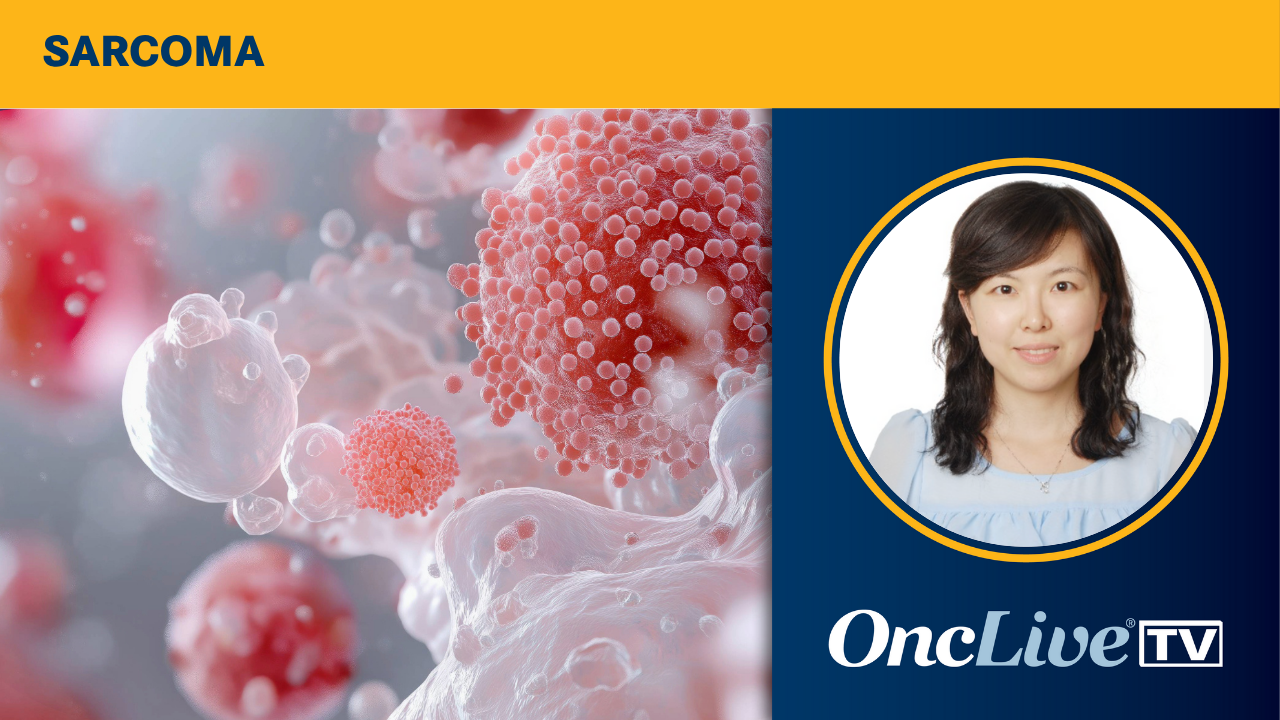Health
Peking University’s Dr. Xie Unveils ARTEMIS-002 Trial for Sarcomas

Dr. Lu Xie, a medical oncologist at Peking University People’s Hospital, recently outlined the objectives and design of the phase 2 ARTEMIS-002 trial (NCT05830123). This clinical study is assessing the efficacy of the B7-H3–targeted antibody-drug conjugate (ADC) HS-20093 in patients diagnosed with relapsed or refractory sarcomas. Notably, this trial marks the first clinical examination of HS-20093 within this specific patient demographic.
The ARTEMIS-002 trial builds on positive outcomes from the earlier phase 1 ARTEMIS-001 trial (NCT05276609), which demonstrated objective responses in various sarcoma subtypes, including osteosarcoma, at doses of 8 mg/kg and 12 mg/kg. These findings were accompanied by an acceptable safety profile, prompting further investigation.
Trial Structure and Cohorts
Cohort 1 of ARTEMIS-002 focuses on patients with relapsed or refractory osteosarcoma. This group aims to identify the optimal dosing strategy by comparing the efficacy and tolerability of two different doses: 8 mg/kg and 12 mg/kg of HS-20093. Early results from ARTEMIS-001 suggested enhanced clinical activity at the higher 12 mg/kg dose, although safety profiles remained similar between both doses. To validate these preliminary findings, the trial expanded by including an additional 10 patients in cohort 3, which aims to further explore the efficacy, duration of response, and any dose-related toxicities linked to the ADC.
Cohort 2 consists of adult patients with other relapsed or refractory sarcoma subtypes, excluding osteosarcoma. Participants in this cohort are being treated with HS-20093 at the recommended phase 2 dose (RP2D) of 12 mg/kg. The primary goals of the trial are to assess the objective response rate and safety across a wider sarcoma population while confirming the RP2D established in earlier research.
To enhance the study’s insights, the design was refined to include cohort 3, which targets adolescent and young adult patients with osteosarcoma. Dr. Xie highlighted that this age group is particularly affected by osteosarcoma, and their inclusion aims to examine both the immunogenicity and pharmacokinetic profile of HS-20093 in younger patients.
Future Implications of the Study
Through this structured approach, the ARTEMIS-002 trial aims to define the efficacy, safety, and optimal dosing of HS-20093 among both adult and adolescent populations. The outcomes are anticipated to provide crucial information for future late-phase development and may support the advancement of B7-H3–directed ADC therapy as a promising treatment option for patients dealing with relapsed or refractory sarcomas.
Dr. Xie’s insights reaffirm the importance of ongoing clinical research in improving therapeutic strategies for challenging cancer types, highlighting a commitment to addressing unmet medical needs in oncology.
-

 Lifestyle3 months ago
Lifestyle3 months agoLibraries Challenge Rising E-Book Costs Amid Growing Demand
-

 Sports3 months ago
Sports3 months agoTyreek Hill Responds to Tua Tagovailoa’s Comments on Team Dynamics
-

 Sports3 months ago
Sports3 months agoLiverpool Secures Agreement to Sign Young Striker Will Wright
-

 Lifestyle3 months ago
Lifestyle3 months agoSave Your Split Tomatoes: Expert Tips for Gardeners
-

 Lifestyle3 months ago
Lifestyle3 months agoPrincess Beatrice’s Daughter Athena Joins Siblings at London Parade
-

 World3 months ago
World3 months agoWinter Storms Lash New South Wales with Snow, Flood Risks
-

 Science3 months ago
Science3 months agoTrump Administration Moves to Repeal Key Climate Regulation
-

 Business3 months ago
Business3 months agoSoFi Technologies Shares Slip 2% Following Insider Stock Sale
-

 Science2 months ago
Science2 months agoSan Francisco Hosts Unique Contest to Identify “Performative Males”
-

 Science3 months ago
Science3 months agoNew Tool Reveals Link Between Horse Coat Condition and Parasites
-

 Sports3 months ago
Sports3 months agoElon Musk Sculpture Travels From Utah to Yosemite National Park
-

 Science3 months ago
Science3 months agoNew Study Confirms Humans Transported Stonehenge Bluestones









